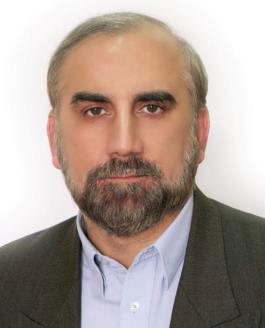
Prof. Hossein Ganjidoust
Environmental Engineering Division, Civil and Environmental Engineering Faculty, Tarbiat Modares University, Tehran, Iran
Title: Effect of Wet Peroxide Oxidation in Removing the Organic Material During Analysis of Microplastics in Water
Abstract:
Microplastics (MPs) have become a significant problem in recent years; this pollution causes harm not only to animals and our environment, and humans. Because of their small size, they can quickly spread through the atmosphere, water (sea, ocean, river, lakes), and soil. They have been found in animal and human organisms, and recent studies have shown that even MPs are found in human blood. They cause many diseases, such as cancer, among other health problems. Hence, finding solutions to remove these particles should be our priority. The most popular reagent used to remove organic matter is hydrogen peroxide oxidation. This study investigates the effect of Wet peroxide oxidation for removing the organic material during the analysis of microplastics, observed the effect of hydrogen peroxide oxidation on color, size, and Fourier-transform infrared spectroscopy, and found a way to optimize the usage of H2O2 as a reagent in future analysis. This paper aims to maximize organic matter removal while minimizing the destruction of microplastics. As a result, humic acid was used as an organic matter, and PVC was used as a microplastic polymer. The variables of this study H2O2 are time (6, 12, 24, and 48h) and temperature (25, 40, 60, and 70 ̊C). According to the results, temperatures of 40 and 60 degrees Celsius in 24 hours have the highest effect of removing organic matter, the least amount of area change, and the most minor effect on microplastic bonding, respectively, and are chosen as the optimal time and temperature.
Biography:
Hossein Ganjidoust received his BS in Chem. Eng. from Kansas State Univ., Manhattan, Kansas in 1976, 1st MS in Ind. Mgt. from Central Missouri State University, Warrensburg, Missouri in 1977 and 2nd MS in Sanitary Engineering from the Univ. of Missouri-Columbia in 1978 and PhD in Env. Eng. from the Univ. of Missouri-Rolla in 1988. A Year (1996) of Sabbatical Leave at the National Ins. for Resources & Env. (NIRE), Tsukuba Science City, Tsukuba, and Ibaraki, Japan.
He has over 30 years’ experience in teaching and research in graduate levels and is presently engaged as Full Prof. in the Dept. of Env. Eng., Civil & Env. Eng. Faculty, at Tarbiat Modares University in Tehran, I.R. Iran. Dr. Ganjidoust’s research interests include water & wastewater, ind. & hazardous waste handling, treatment, and disposal. In addition, he has given many lectures related to Culture, Archeology & humanity Sciences.
He has supervised more than 30 research projects, and many PhD and MS students’ theses. At present time, he is supervisor of 6 PhD theses and 8 MS theses.
He has published over 150 papers in scientific and ISI Journals and over 200 conference proceedings on his research. He was engaged in the books entitled: Principles of construction debris Landfill Site Selection (Case study: Tehran), Department of Housing and Urban Development, Building and Housing Research Center, Feb. 2013 (in Persian), "Application of Moving Bed Biofilm Reactor (MBBR) in Sanitary & Industrial Wastewater Treatment", Tarbiat Modares Univ. Published in February 2011 and a chapter on: “Hazardous Waste Management in Islamic Republic of Iran, HWM Policies and Practices in Asian Countries” published by Asian Productivity Organization (APO), Tokyo in October 2001.